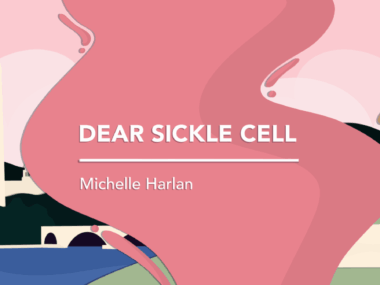RoslinCT to manufacture CRISPR-based gene therapy Casgevy
Therapy was approved by FDA this month for people 12-up with VOCs
Written by |

RoslinCT will manufacture the groundbreaking new gene therapy Casgevy (exagamglogene autotemcel) for sickle cell disease (SCD) patients in the U.S. and U.K.
RoslinCT, a cell and gene therapy contract development and manufacturing company, has facilities in Edinburgh, Scotland and Hopkinton, Massachusetts. The company worked with Vertex Pharmaceuticals on an adaptive basis as it and CRISPR Therapeutics developed the first U.S. Food and Drug Administration (FDA)-approved CRISPR-based treatment.
Casgevy was approved earlier this month in the U.S. for patients ages 12 and older with recurrent and painful vaso-occlusive crises (VOCs). It won conditional approval in November in the U.K. for sickle cell patients ages 12 and older for whom a stem cell transplant is apt, but no donor is available.
“We are delighted that patients in both the U.S. and U.K. are now able to access this transformational medicine,” Peter Coleman, U.K. CEO of RoslinCT, said in a press release. “This approval by the FDA further demonstrates our world-leading capabilities in development, support, and manufacturing cutting-edge cell and gene therapies such as Casgevy. We are proud to have supported Vertex in achieving this significant milestone and look forward to supporting their team as they bring the first approved CRISPR treatment to patients in the U.S., U.K. and beyond.”
Casgevy is the first cell-based gene therapy employing CRISPR/Cas9, a gene-editing technology, to gain approval in the U.S. The companies codeveloping Casgevy submitted a rolling biologics license application to federal regulators earlier this year. The FDA agreed to grant it priority review, a decision that reduced the review time to about eight months.
Formerly known as CTX001, Casgevy is under standard review in the U.S. for a related condition called transfusion-dependent beta thalassemia. A decision is expected by March 20. The EU is considering similar applications.
What does Casgevy do for SCD, beta thalassemia?
In SCD and beta thalassemia, there is a lack of functional hemoglobin, a protein in red blood cells that’s responsible for transporting oxygen through the body. In sickle cell, genetic mutations lead to a defective form of hemoglobin that causes red blood cells to “sickle,” or become misshapen. In beta thalassemia, little to no hemoglobin is produced.
Casgevy heightens the production of fetal hemoglobin, which is produced during fetal development. This particular form of hemoglobin is more effective at transporting oxygen through the body than its adult counterpart, which starts being produced some time after birth. Sickle cell-causing mutations affect the adult version of hemoglobin, but not the fetal form.
Casgevy employs CRISPR/Cas9 to modify a specific point in the DNA sequence of a gene that encodes BCL11A, a protein that normally prevents the production of fetal hemoglobin after birth. This alteration impedes BCL11A production, enabling fetal hemoglobin to be made.
As part of the procedure, a patient’s blood cell precursors are modified and then returned through a stem cell transplant following high-dose chemotherapy to destroy faulty cells. The altered cells are expected to repopulate the blood with cells capable of producing healthy hemoglobin, thus preventing red blood cell sickling.
Results from the ongoing Phase 2/3 CLIMB-121 clinical trial (NCT03745287) that backed Casgevy’s approvals showed that a single infusion was sufficient to prevent any VOCs for at least a year in 29 of the 31 assessed sickle cell patients. All stem cell transplants were successful, with no rejection cases reported. An extension study, called CLIMB-131 (NCT04208529), is underway to evaluate Casgevy’s long-term safety. CLIMB-121 patients may join CLIMB-131 and be monitored for up to 15 years.
An open-label Phase 3 trial called CLIMB-151 (NCT05329649) is evaluating Casgevy’s safety and effectiveness in young patients with severe sickle cell, ages 2-11. The study has similar objectives as CLIMB-121 in adults and is set to conclude in 2026.



